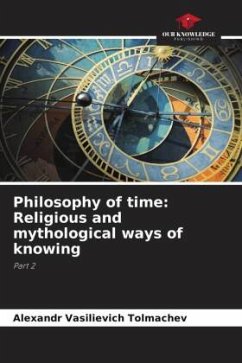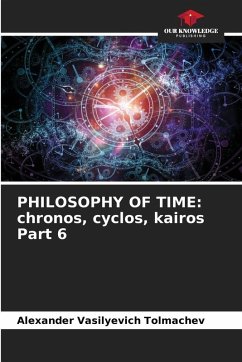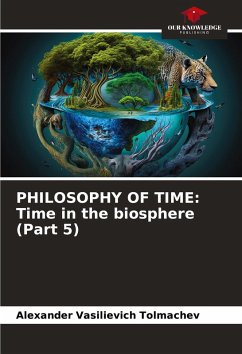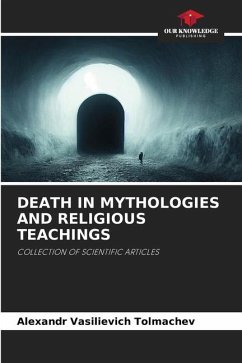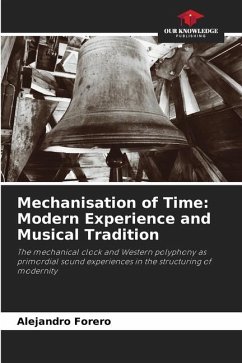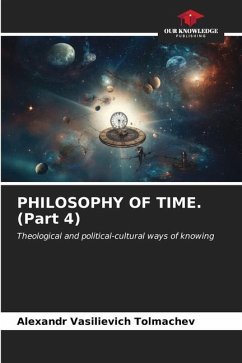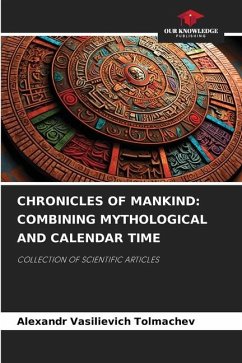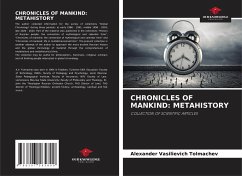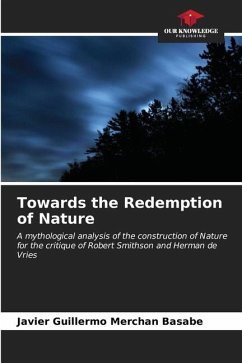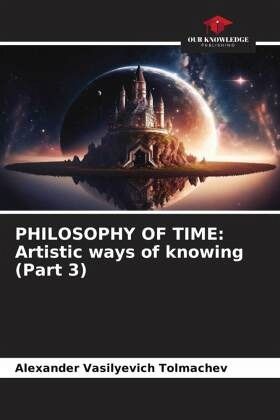
PHILOSOPHY OF TIME: Artistic ways of knowing (Part 3)
Versandkostenfrei!
Versandfertig in 6-10 Tagen
22,99 €
inkl. MwSt.

PAYBACK Punkte
11 °P sammeln!
The subject of research in the first and second parts of "Philosophy of Time" was time itself, where the author proposed to look at it from the perspective of scientific and philosophical, religious and mythological methods of cognition. In the third part of "Philosophy of Time" the author continues to study time from the positions of artistic methods of cognition.The author in the series of books "Philosophy of Time" offers readers to look at time, synthesizing scientific, philosophical, religious, mythological, artistic and intuitive methods of cognition. The main provisions and conclusions ...
The subject of research in the first and second parts of "Philosophy of Time" was time itself, where the author proposed to look at it from the perspective of scientific and philosophical, religious and mythological methods of cognition. In the third part of "Philosophy of Time" the author continues to study time from the positions of artistic methods of cognition.The author in the series of books "Philosophy of Time" offers readers to look at time, synthesizing scientific, philosophical, religious, mythological, artistic and intuitive methods of cognition. The main provisions and conclusions of this work can serve for practical use by scientists, philosophers, religious scholars, psychologists, clergymen, and journalists.



